Dentists recommend 2 exams per year. Book your exam today!
What Is The Best Antibiotic For Gum Infection?

Are your gums feeling sore and inflamed? It’s time to tackle that gum infection head-on! Gum infections can be painful and disruptive to your daily life, but fear not – there are solutions available. In this blog post, we’ll explore the role of antibiotics in treating gum infections, discuss commonly prescribed options, and even delve into some natural remedies. Plus, we’ll provide you with essential tips for maintaining good oral health to prevent future gum infections. So sit back, relax (but not too much), and let’s dive into the world of finding the best antibiotic for gum infection!
Understanding Gum Infections
Picture this: you’re going about your day when suddenly, you notice that your gums are red, swollen, and maybe even bleeding a little. What’s going on? Well, my friend, you may be experiencing a gum infection.
Gum infections occur when bacteria invade the tissues surrounding your teeth. Poor oral hygiene is often to blame – if you neglect proper brushing and flossing, bacteria can build up in plaque and eventually lead to an infection. Other factors, such as hormonal changes, certain medications, or underlying health conditions, can also contribute to gum infections.
So what exactly happens during a gum infection? Well, the body’s immune system kicks into high gear to fight off the invading bacteria. This causes inflammation of the gums and leads to symptoms like tenderness, swelling, and sometimes even pus-filled pockets around the teeth.
Left untreated, gum infections can progress into more serious conditions such as periodontitis – a severe form of gum disease that can result in tooth loss. That’s why it’s crucial to address these infections promptly before they wreak havoc on your oral health!
Now that we have a better understanding of what gum infections are all about, let’s move on to exploring how antibiotics can help combat these pesky invaders!
The Role of Antibiotics in Treating Gum Infections
When it comes to treating gum infections, antibiotics play a crucial role in eliminating the bacteria causing the infection. These medications are designed to target and kill harmful bacteria, helping to reduce inflammation and promote healing.
Antibiotics work by either stopping the growth of bacteria or killing them off completely. They can be prescribed as oral tablets, capsules, or even topical gels or rinses for localized infections. The specific type of antibiotic recommended will depend on the severity of the infection and your overall health condition.
One commonly prescribed antibiotic for gum infections is amoxicillin. It belongs to the penicillin family and is effective against various types of bacterial infections. Another option is metronidazole, which works well against anaerobic bacteria commonly found in gum disease.
It’s important to note that antibiotics should always be taken as directed by your dentist or healthcare provider. The full course of treatment should be completed even if symptoms improve before finishing the medication.
While antibiotics can effectively treat gum infections, they do come with potential side effects and risks. Common side effects include upset stomach, diarrhea, and allergic reactions. Additionally, overuse or misuse of antibiotics can lead to antibiotic resistance – a growing concern in healthcare today.
In conclusion,
antibiotics play an important role in treating gum infections by targeting and eliminating harmful bacteria that cause inflammation and infection. However, it’s essential to use them responsibly under professional guidance while being aware of potential side effects and risks associated with their use.
Commonly Prescribed Antibiotics for Gum Infections
When it comes to treating gum infections, antibiotics can play a crucial role in combating the bacteria causing the infection. Your dentist or healthcare provider may prescribe antibiotics to help clear up the infection and promote healing.
One commonly prescribed antibiotic for gum infections is amoxicillin. This broad-spectrum antibiotic is effective against many types of bacteria and is often used as a first-line treatment option. Another frequently prescribed antibiotic is metronidazole, which targets specific bacteria that are common culprits in gum infections.
In some cases, your dentist may recommend combining different antibiotics to increase their effectiveness. For example, amoxicillin and metronidazole are often prescribed together to cover a broader range of bacterial strains.
It’s important to note that antibiotics should always be taken as directed by your healthcare professional. Completing the full course of antibiotics is essential to ensure that all bacteria are eliminated from your system and prevent the infection from returning or becoming resistant to treatment.
While these antibiotics can be effective in treating gum infections, they do come with potential side effects and risks. Common side effects include nausea, diarrhea, and an increased risk of yeast infections in women.
It’s also worth noting that not all gum infections require antibiotic treatment. Your dentist will determine if antibiotics are necessary based on factors such as the severity of the infection and your overall health condition.
In addition to prescription medications, there are also natural remedies available for managing mild cases of gum infections. These include rinsing with saltwater or using herbal mouthwashes containing ingredients like tea tree oil or peppermint oil.
However, it’s essential to remember that natural remedies should not replace professional dental care when dealing with severe or persistent gum infections.
Potential Side Effects and Risks of Antibiotic Use
While antibiotics can be effective in treating gum infections, it’s important to be aware of the potential side effects and risks associated with their use. Like any medication, antibiotics come with their own set of potential drawbacks.
One common side effect of antibiotic use is gastrointestinal upset, including nausea, diarrhea, and abdominal pain. This occurs because antibiotics not only kill harmful bacteria but also disrupt the balance of good bacteria in your gut. It’s important to take probiotics or eat yogurt while on a course of antibiotics to help restore this balance.
Another risk associated with antibiotic use is the development of antibiotic resistance. When we overuse or misuse antibiotics, bacteria can adapt and become resistant to them. This can make future infections more difficult to treat effectively.
In some cases, individuals may experience allergic reactions to certain types of antibiotics. These reactions can range from mild skin rashes to more severe symptoms like difficulty breathing or swelling in the face or throat. If you suspect an allergic reaction, seek medical attention immediately.
It’s worth noting that not everyone will experience these side effects or risks when taking antibiotics for a gum infection. However, it’s always important to be mindful and informed about the potential complications associated with any medication.
Remember: Always follow your dentist’s instructions regarding dosage and duration when prescribed an antibiotic for a gum infection!
Natural Remedies for Gum Infections
When it comes to treating gum infections, antibiotics are often the go-to solution. However, if you prefer a more natural approach or want to complement your antibiotic treatment, several home remedies can help alleviate symptoms and promote healing.
One effective natural remedy is saltwater rinses. Simply dissolve half a teaspoon of salt in warm water and swish it around in your mouth for about 30 seconds before spitting it out. Saltwater helps reduce inflammation and kills bacteria in the mouth, providing relief from gum infection discomfort.
Another popular home remedy is tea tree oil. Known for its antimicrobial properties, this essential oil can be diluted with coconut oil and applied directly to the affected area using a cotton swab or clean finger. Be sure not to swallow any of the mixture, as tea tree oil is toxic when ingested.
In addition to these remedies mentioned above, applying a cold compress on swollen gums can help reduce inflammation and provide temporary pain relief. Chewing on raw garlic cloves also has antibacterial properties that may aid in fighting off infection.
While these natural remedies may offer some relief, it’s important to remember that they should not replace professional dental care or prescribed medications. Consulting with your dentist is crucial for an accurate diagnosis and appropriate treatment plan for gum infections.
Remember, prevention is always better than cure! Practicing good oral hygiene habits such as brushing twice a day with fluoride toothpaste, flossing daily, and visiting your dentist regularly can significantly reduce the risk of developing gum infections.
By incorporating these natural remedies into your routine while maintaining good oral health practices, you can support overall dental well-being and potentially prevent future gum infections from occurring.
Tips for Maintaining Good Oral Health to Prevent Gum Infections
- Maintaining good oral health is essential for preventing gum infections and keeping your smile healthy. Here are some tips to help you maintain a healthy mouth.
- It’s important to brush your teeth at least twice a day using fluoride toothpaste. Brushing helps remove plaque and bacteria that can lead to gum disease. Be sure to use gentle, circular motions and brush all surfaces of the teeth, including the gums.
- In addition to brushing, don’t forget to floss daily. Flossing helps remove food particles and plaque from between the teeth and along the gum line, which your toothbrush can’t reach.
- Regular dental check-ups are also crucial for maintaining good oral health. Dentists can detect early signs of gum disease or other dental issues and provide treatment before they worsen.
- Watch what you eat! A balanced diet that includes plenty of fruits and vegetables can help strengthen your immune system, which in turn promotes healthier gums.
- Limit sugary snacks and drinks as they can contribute to tooth decay. Instead, opt for water or unsweetened beverages whenever possible.
- Avoid smoking or using tobacco products as they increase the risk of gum disease and other oral health problems.
Gum infections can be a painful and troublesome condition that requires proper treatment. While antibiotics play a crucial role in managing these infections, it is important to consult with your dentist or healthcare provider before starting any medication.
There are several commonly prescribed antibiotics for gum infections, including amoxicillin, metronidazole, and clindamycin. These medications work by targeting the bacteria causing the infection and reducing inflammation in the gums. However, it is essential to follow the prescribed dosage and complete the full course of antibiotics to ensure effective treatment.
It’s important to note that antibiotic use does come with potential side effects and risks. These may include allergic reactions, digestive issues, and the development of antibiotic resistance. Therefore, it is vital to discuss any concerns or existing medical conditions with your healthcare provider before starting antibiotic therapy.
Additionally, natural remedies such as saltwater rinses or herbal mouthwashes can help alleviate symptoms of gum infections but should not replace professional dental care.







